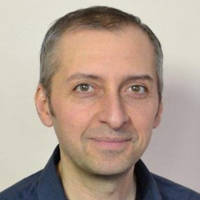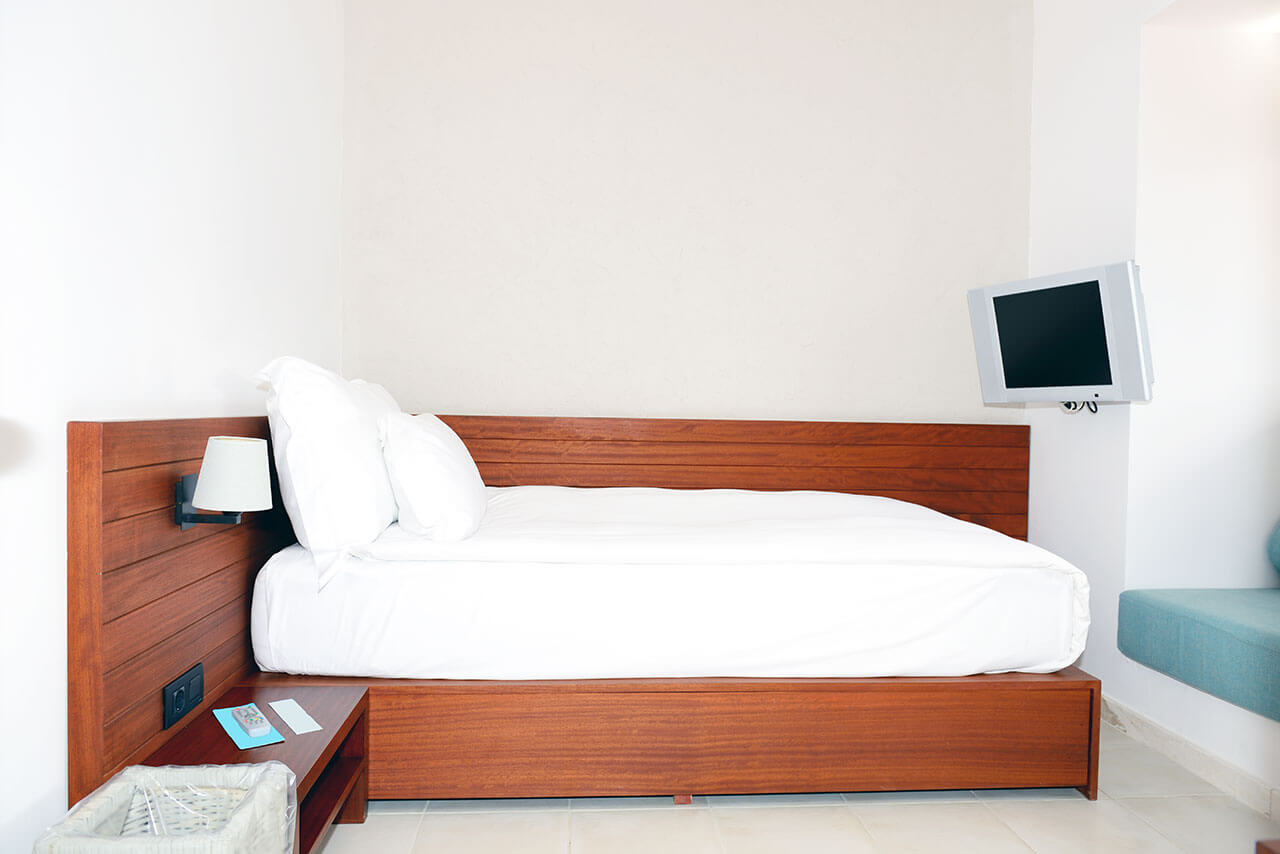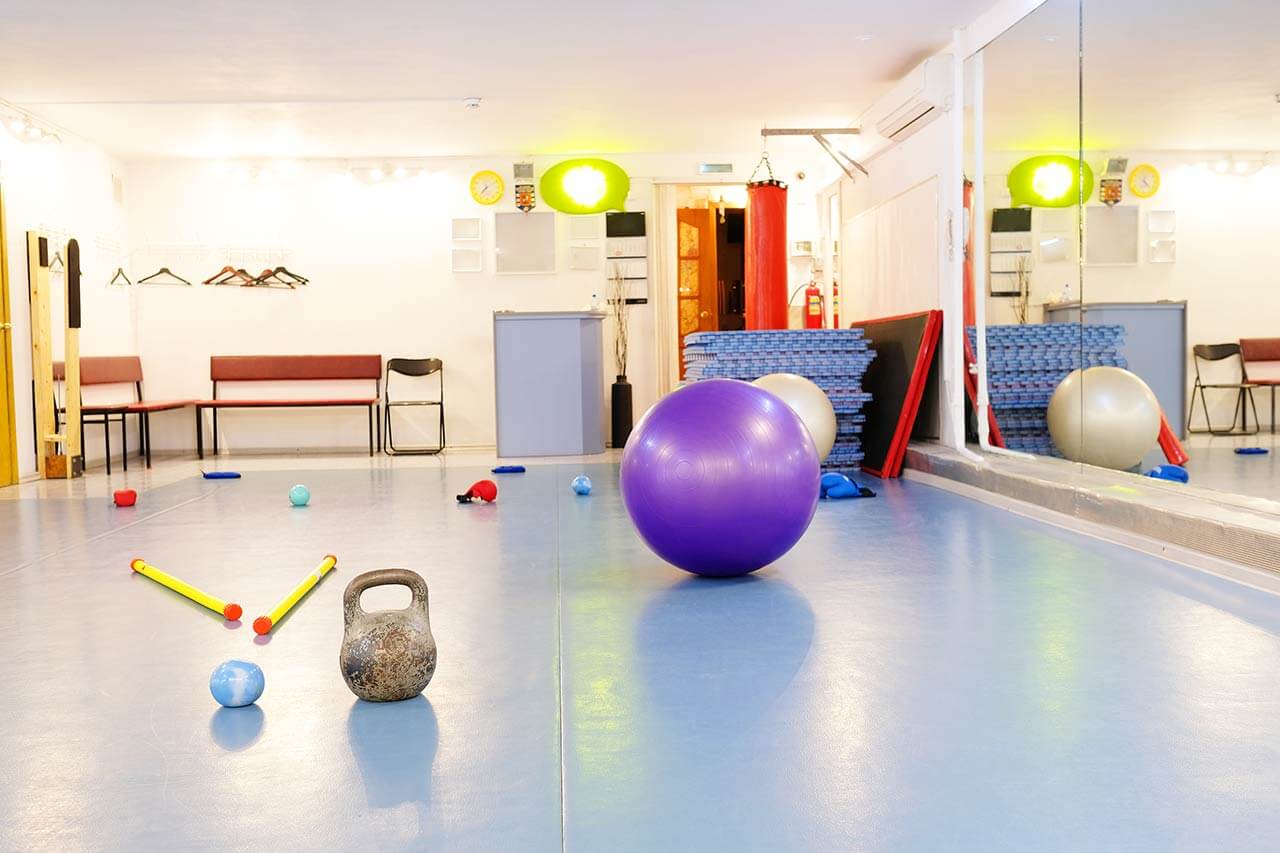
The program includes:
- Primary presentation in the clinic
- medical history, including family history
- complex neurological and orthopedic examinations
- CT / MRI / X-ray examination
- complex neurophysiological examinations
- individual rehabilitation program, which includes:
- Wii Fit training in the use of the balance
- neuropsychological therapy
- functional therapy of the upper extremities (ArmeoSpring)
- kinesitherapy (physiotherapy)
- biocontrol with feedback
- healing deep muscle massage
- acupuncture of spasticity and pain syndromes
- occupational therapy
- psycho-educational classes
- Individual physiotherapy
- microcurrent treatment
- fangotherapy / cryotherapy
- antispasmodic drug therapy
- mobilization of limb joints
- hydrotherapy / massage therapy / reflexology
- training on special trainers
- and etc.
- nurses care
- stay in the hospital with full board
- symptomatic and drug therapy
Service
You may also book:
 BookingHealth Price from:
BookingHealth Price from:
About the department
The Department of Orthopedic Rehabilitation at the MEDIAN Rehabilitation Clinic Bad Sülze offers all modern types of medical rehabilitation to the patients who have suffered musculoskeletal diseases and injuries, as well as rheumatic diseases. The patients are often admitted to the department after joint replacement surgery, spinal surgery and limb amputation. The department's rehabilitation therapists have vast experience in the treatment of chronic back and joint pain. The primary goal of the specialists during orthopedic rehabilitation is to eliminate pain, restore mobility and achieve maximum independence of the patient in everyday life. The young patients are also offered medical profession-oriented rehabilitation, which aims to reintegrate the patient into his professional environment. This type of rehabilitation treatment is preceded by a special examination, which allows for the assessment of the patient's rehabilitation potential. The department is headed by Dr. med. Emilian Mladenov.
Prior to appointing some therapeutic procedures, the rehabilitation therapists carry out comprehensive diagnostics to assess the severity of damage to the musculoskeletal system, movement functions and general health of the patient. For this purpose, the department has in-house diagnostic rooms with state-of-the-art equipment. The patients often undergo such diagnostic tests as ultrasound and X-ray scanning, electrophysiological testing, electrocardiography, isokinetic muscle testing, psychological testing, etc. The diagnostic results allow the department's specialists to develop the most effective rehabilitation program and eliminate any risks to the patient's health. In addition, the patients also regularly undergo diagnostic examinations during the rehabilitation in order to monitor the effectiveness of treatment
The complex of rehabilitation measures is selected individually, but the rehabilitation treatment is usually based on dosed physical activity. In addition to therapeutic exercises, the patients are offered sports therapy, medical training therapy, Nordic walking, training on professional exercise equipment (for example, MILON), water aerobics, etc. Training often takes place in groups, since it is important for many patients to understand that their case is not unique, and there are other people with the same diseases. An integral part of rehabilitation is physiotherapy: classic massage, manual lymphatic drainage, electrotherapy, thermotherapy and other types of treatment. An obligatory component of the rehabilitation process is diet therapy, since the patients with musculoskeletal diseases and injuries lead a sedentary lifestyle, which can cause weight gain. In addition, the importance of psychological support provided to the patients by the department's competent psychologists should not be underestimated. The patients with orthopedic diseases often suffer from depression and lose faith that they will be able to return to their previous life, so the task of psychologists is to help them cope with the pathology and motivate the patient for a favorable treatment outcome.
The department specializes in the rehabilitation of patients after the following orthopedic and rheumatic diseases, as well as surgical interventions on the musculoskeletal system:
- Orthopedic diseases
- Pathological conditions after surgical interventions for spinal disc herniation and spinal fusion
- Pathological conditions after surgical interventions on various anatomical structures of the musculoskeletal system, including joint replacement surgery
- Pathological conditions after limb amputation
- Pathological conditions after bone fractures, including after osteosynthesis and conservative treatment
- Pathological conditions after removing the corset to support the spine after surgery
- Pathological conditions after conservative therapy of spinal disc herniation
- Complications of congenital and acquired musculoskeletal deformities
- Functional diseases of the spine and joints
- Degenerative diseases of the spine and joints
- Myofascial pain syndrome
- Osteoporosis
- Back pain due to radiculopathy
- Chronic pain in the spine and joints
- Musculoskeletal malignancies and pathological conditions after their surgical resection, chemotherapy and radiation therapy
- Consequences of musculoskeletal injuries, including sports injuries
- Rheumatic diseases
- Pathological conditions after surgery for rheumatic diseases, as well as pathological conditions after basic conservative treatment of rheumatic diseases
- Rheumatoid arthritis, including various clinical forms of this pathology
- Ankylosing spondylitis and other inflammatory spinal diseases
- Psoriatic joint lesions
- Reactive arthritis
- Seronegative spondyloarthropathies
- Crystalline arthropathy
- Collagenoses
- Osteoporosis (postmenopausal, corticosteroid-induced, age-related one)
- Chronic pain in the back and joints
- Fibromyalgia
- Degenerative diseases of the spine and joints (for example, Forestier's disease, Heberden's and Bouchard's nodes)
- Other pathologies
The range of the department's diagnostic and therapeutic services includes:
- Diagnostic tests
- Laboratory tests, including serological tests for rheumatic diseases
- Ultrasound examinations
- Doppler ultrasonography of the peripheral vessels
- X-ray, computed tomography and functional imaging of the skeletal system
- Electrophysiological studies
- Assessment of the rehabilitation potential of patients who require medical profession-oriented rehabilitation
- Electrocardiography and ergometry
- Manual and isokinetic muscle testing
- Special functional diagnostics prior to ergotherapy
- Assessment of the patient's psychological condition
- Rehabilitation methods
- Physiotherapy
- Manual therapy
- Osteopathy
- Spinal decompression therapy
- Gait training
- Therapeutic exercises and kinesiotherapy
- Brunkow exercises
- Proprioceptive neuromuscular facilitation
- Kinesio taping
- Pilates
- Isokinetic exercises
- Nordic walking
- THerapeutic exercises in groups for patients with the same diagnosis, including water aerobics
- Therapeutic exercises to strengthen the back muscles
- Ergometer, treadmill, Galileo training, etc.
- Medical training therapy in a simulated workplace
- Physical therapy
- Classic massage
- Manual lymphatic drainage
- Marnitz massage
- Inhalations
- Electrotherapy (ultrasound therapy, galvanic baths, TENS therapy for pain relief, amplipulse, selective electrical stimulation, diadynamic currents)
- Hydrotherapy and thermotherapy
- Mud baths
- Mud wraps
- Healing baths and contrast baths
- Cryotherapy
- Warm compresses
- Ergotherapy
- Psychological counseling
- Diet therapy
- Pain therapy
- Manual therapy/osteopathy
- Myofascial release
- TENS therapy
- Neural therapy and acupuncture
- Relaxation techniques
- Physiotherapy
- Other diagnostic and therapeutic options
Photo of the doctor: (c) VAMED Rehazentrum Lübeck
About hospital
The MEDIAN Rehabilitation Clinic Bad Sülze has earned a reputation as a leading medical facility in the region and throughout Germany specializing in the rehabilitation treatment of patients after orthopedic, rheumatic and neurological diseases, as well as surgical interventions on the musculoskeletal system, brain and spinal cord. The medical facility began its activities in 1993 and nowadays successfully provides rehabilitation for the patients with both simple and especially complex clinical cases, using reliable classical and innovative therapies available in modern rehabilitation medicine. Each rehabilitation program is developed with due consideration of the requirements and guidelines of the professional societies.
It is worth noting that the clinic is certified by the German Society of Rheumatology as a Training Center of Mecklenburg-Vorpommern for the implementation of a training program for patients with chronic polyarthritis. In addition, a highly specialized Aphasia Center has been operating in the clinic since 2005.
The main task of each medical employee of the clinic is to restore the patient's mobility, self-care skills, as well as cognitive skills lost due to a neurological disorder. The clinic's specialists conduct medical profession-oriented rehabilitation aimed at restoring lost professional skills and reintegrating the patient into his professional life. The center has a special program for the assessment of the patient's rehabilitation potential in order to restore his work capacity. This program makes it possible to comprehensively assess the patient's condition and predict the likelihood of his reintegration into the professional environment.
The rehabilitation treatment involves the use of a complex of various therapeutic methods, which are selected for each patient individually. The majority of rehabilitation programs are based on therapeutic exercises, physiotherapy, occupational therapy, diet therapy and psychotherapy. Since the rehabilitation clinic is located in a spa town, the patients have the opportunity to take advantage of the healing forces of nature – here they can have therapeutic mud wraps with a high salt content, as well as mud baths.
The clinic is proud of a large number of prestigious quality certificates, including the ISO certificate, the TÜV Rheinland certificate, the EQR certificate, the DEGEMED certificate of the German Society of Medical Rehabilitation and others. The medical team of the rehabilitation center makes every effort to provide each patient with the effective rehabilitation treatment and make his stay in the clinic as comfortable as possible, as well as surround him with warmth, care and understanding.
Photo: (с) depositphotos
Accommodation in hospital
Patients rooms
The patients of the MEDIAN Rehabilitation Clinic Bad Sülze live in comfortable single and double rooms with a modern design. Each patient room has an ensuite bathroom with shower and toilet. Many patient rooms are specially equipped to meet the needs of disabled people. The standard patient room furnishings include an automatically adjustable bed, a bedside table, a wardrobe, a table and a chair for receiving visitors, a telephone and a TV. The patient rooms also have Wi-Fi.
If desired, the patients can live in enhanced-comfort rooms. They are additionally equipped with upholstered furniture, a mini fridge and a safe for storing valuables.
Meals and Menus
The patient and the accompanying person are offered tasty and balanced three meals a day. The patients have a daily choice of three menus for lunch, as well as buffet breakfast and dinner. If for some reason you do not eat all foods, you will be offered an individual menu. Please inform the medical staff about your food preferences prior to treatment.
Further details
Standard rooms include:
Religion
The religious services are available upon request.
Accompanying person
During the inpatient program, the accompanying person can live with the patient in a patient room or a hotel of his choice. Our managers will help you choose the most suitable option.
Hotel
During an outpatient program, the patient can stay at the hotel of his choice. Our managers will help you choose the most suitable option.




